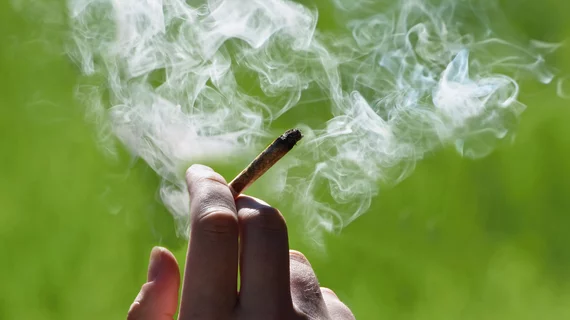Scientists got mice high to study the 'munchies'
Getting unnecessarily hungry and having a desire for food—often called “the munchies”—is a well-known effect of consuming cannabis and getting “high.” However, little was known about why THC in any form—be it buds from the marijuana plant, edible candies, or vapes—has this side effect. Researchers at Washington State University may now have an answer, after a mechanism in the brain that promotes appetite has been revealed in a new study published in Scientific Reports. [1]
While the study was conducted entirely on animals, the researchers said that the discovery could lead to therapies to not only quell the need for Cheez-Its after a toke, but also to treat eating disorders such as anorexia—and possibly even obesity.
To conduct their research, the team at Washington State University got mice “stoned” using vaporized cannabis from a sativa strain of the plant. Using calcium imaging technology similar to an MRI, they examined the brains of the mice while on the drug to observe effects, with sober mice serving as a control group.
The researchers noted that cannabis activated a set of cells in the hypothalamus when the rodents anticipated and consumed food. This effect was only present in mice exposed to the drug.
“When the mice are given cannabis, neurons come on that typically are not active,” study co-author Jon Davis, an assistant professor of neuroscience at Washington State University, said in a statement. “There is something important happening in the hypothalamus after vapor cannabis.”
Calcium imaging has been used by other researchers to examine the brain’s reactions to food, but the study authors said this is the first time while subjects were under the influence of THC.
In the course of their investigation, the researchers uncovered a significant finding: The cannabinoid-1 receptor of the brain, a recognized target of THC, wielded influence over the function of a distinct group of hypothalamic cells known as Agouti-related peptide neurons, closely associated with feeding regulation.
The researchers applied a "chemogenetic" approach, akin to a molecular light switch, to precisely target these neurons in the presence of cannabis. When neurons were deactivated, the stimulatory effect of cannabis on appetite ceased to manifest.
Davis said this finding is significant.
“We now know one of the ways that the brain responds to recreational-type cannabis to promote appetite,” he said.
This latest research builds on previous studies of the relationship between cannabis and appetite from Davis’s lab, which was among the first to use whole vaporized cannabis plant matter in animal studies instead of injected THC— a change made to better mimic how cannabis is used by humans, the statement said.
The full study can be read at the link below.

